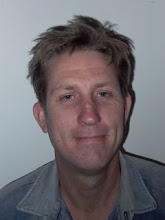I was pondering this morning if love is like a circle, then self-interest is like a line. Circles are complex, resilient and soft whereas lines are direct, simple and piercing.
John Donne wrote about his love being like a compass, someone who his life revolved around, who drew him back and guided his actions.
And then I thought of the analogy someone made about the difference between drawing and digital rendering, that computers don't do circles, but they do lines very well. And then they made the point that a triangle, progressing to a square, through hexagon becomes more and more circular. The more lines that you add the closer an approximation of a circle you get; but paradoxically the more you add sides to your model the more you move away from a circle because you are just adding more and more lines.
Is this a little like our modern penchant with consumerism? Or the way we regulate our corporations? More rules for our children so they don't actually have to take responsibility for their own decision making? That we have the house and car and plasma TV but lack the core of a contented soul? That we treat workers as parts of the machine, all grist for the mill? Do we need to step back and look at the big picture?
Lets be nice to each other people; do the right thing by each other, and not put our own interests first. We might even find our good deeds come back to us...
Blog>> The Knowledge Manager’s Handbook Wins An Award!
-
Well that was a nice piece of news for a Tuesday morning: my book with Nick
Milton The Knowledge Manager’s Handbook has won CILIP UK’s prestigious K&IM
Inf...
6 years ago



